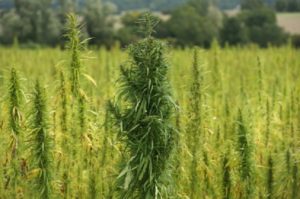In the last several years, marijuana based remedies have been discovered for a number of chronic ailments including PTSD, epilepsy, and potentially cancer and Alzheimer’s Disease. Marijuana has been proven to have versatile medical value, and when used recreationally is generally safe, unlike legal alcohol which kills 88,000 people in the U.S. each year. According to the CDC, excessive use of alcohol has an annual cost of $250 billion.
What do Pharma, Corrections, and Beverage Distributors have in Common?
Marijuana prohibition has provided massive profits for the pharmaceutical industry, for-profit corrections, and the adult beverage industry- all of which have lobbied heavily against the legalization of medical and recreational marijuana. Pharma is horrified by a medication that anyone can grow. Beverage producers and distributors don’t want competition. The Corrections Corporation of America has revealed that ongoing prohibition is central to its business strategy.
Meanwhile, due to nearly 100 years of prohibition, marijuana research has been  extremely limited. Politics and propaganda have traditionally made pot the elephant in the room. Now we find out that cannabis oil may be a potent adversary to cancer. Veterans returning from Iraq and Afghanistan are flocking towards medical marijuana for help with PTSD. Vets and people throughout the country suffering traumatic injuries and illnesses are finding marijuana to be an effective tool, and a way to avoid the grip of opiate addiction that is sweeping through many parts of the United States.
extremely limited. Politics and propaganda have traditionally made pot the elephant in the room. Now we find out that cannabis oil may be a potent adversary to cancer. Veterans returning from Iraq and Afghanistan are flocking towards medical marijuana for help with PTSD. Vets and people throughout the country suffering traumatic injuries and illnesses are finding marijuana to be an effective tool, and a way to avoid the grip of opiate addiction that is sweeping through many parts of the United States.
But all this time we were told that marijuana killed brain cells, caused psychosis, made you stupid and unsuccessful, and even led to violence. This propaganda was the worst kind possible, preventing folks from using an effective natural medication with few harmful side effects in comparison to alcohol. It is hard to say how many studies could have been done over a hundred years, and how many people suffered unnecessarily because of prohibition. Though we do know that with inflation, prohibition costs the government roughly $20 billion dollars a year.
Federal Legalization on the Horizon
The good news is that massive change is upon us. 50% of states now have legalized medical marijuana, and 4 states have legal recreational use. California will almost certainly legalize marijuana for recreational use in November which will be the nail in the coffin for Federal prohibition. In additional to Cali, eight other states, including my home state of Massachusetts, are also voting on legalizing recreational use this fall. Prohibition is coming to an end. In states where medical marijuana is legal, the healthcare industry is seeing a reduction in the need and costs for traditional medications. Nationally, medications made by pharmaceutical companies will begin to decrease as nature’s remedy, medical marijuana, becomes more prevalent.
Alzheimer’s and Cannabis – The Study
Alzheimer’s Disease is a devastating experience for all those involved. Previously I blogged about the best way to prevent Alzheimer’s is with a plant-based diet. Until now there has been no hope on the horizon for an effective treatment of the disease, until now. If you have not read about this in the news in the last week, it has been found that THC may be able to remove built up Amyloid proteins. Amyloid proteins are the “plaques” that build up in the brain. The build up is the same way arterial plaque builds up when cholesterol and fat bond with calcium. Delivering a one-two punch, THC also reduces cellular inflammation associated with the underlying progression of Alzheimers.
Professor David Schubert, senior author of the Salk Institute’s study said in a press release, “Although other studies have offered evidence that cannabinoids might be neuroprotective against the symptoms of Alzheimer’s, we believe our study is the first to demonstrate that cannabinoids affect both inflammation and amyloid beta accumulation in nerve cells.”
The study was published in the journal Aging and Mechanisms of Disease, and offers new insights into how the brain responds to the buildup of proteins, which form plaque that interrupts neural connections in Alzheimer’s patients. The study marks the first time researchers were able to promote the removal of these proteins in the brain, and offers a new path of research toward a treatment that tackles this buildup.
The researchers studied nerve cells that were altered to produce high amounts of amyloid beta to mimic a cell in the brain of an Alzheimer’s patient. When the cells were exposed to THC, amyloid beta protein levels dropped significantly and the nerve cells ceased being inflamed as a result.
 “Inflammation within the brain is a major component of the damage associated with Alzheimer’s disease, but it has always been assumed that this response was coming from immune-like cells in the brain, not the nerve cells themselves,” said co-author Antonio Currais. “When we were able to identify the molecular basis of the inflammatory response to amyloid beta, it became clear that THC-like compounds that the nerve cells make themselves may be involved in protecting the cells from dying.”
“Inflammation within the brain is a major component of the damage associated with Alzheimer’s disease, but it has always been assumed that this response was coming from immune-like cells in the brain, not the nerve cells themselves,” said co-author Antonio Currais. “When we were able to identify the molecular basis of the inflammatory response to amyloid beta, it became clear that THC-like compounds that the nerve cells make themselves may be involved in protecting the cells from dying.”
The official press release from the Salk Institute describing the details of the study can be found here.



